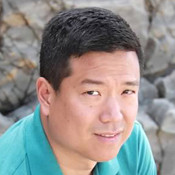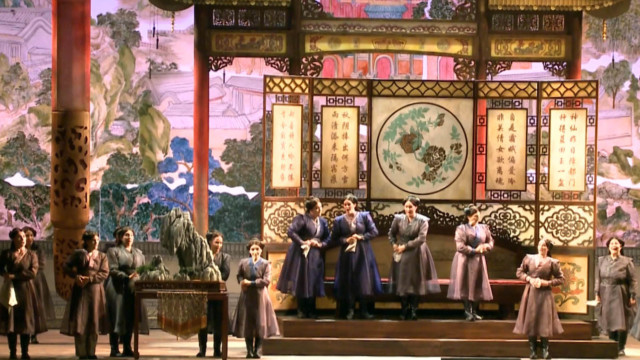It is considered one of China’s greatest novels – “Dream of the Red Chamber” by Cao Xueqin. But it’s relatively unheard of in the West. At San Francisco’s War Memorial Opera House, a dream team of artists is seeking to change that, by bringing the story to a completely new format.
CCTV America’s Mark Niu has the story.

A love story about a stone and a flower changing forms to reunite as mortals on earth.
This production is all about breaking molds-a Chinese classic performed through Western opera, starring a Chinese male lead, a South Korean female lead, and many non-Asian chorus members.
University of Michigan Music Professor and Chinese American, Bright Sheng, composed the music and brought the story to life.
“I’m Chinese. I’m telling a Chinese story. I’ve lived for great many years in China and I studied the culture and I think my take will be quite different. But it will also be different from someone living in China who had completely lived in China all their life,” Sheng said.
Enamored by the story since he was a child, Sheng said the daunting task of turning “Dream of the Red Chamber” into an opera was worth the risk.
“The subject matter is no matter how you do it, someone will love it some will hate it. For me, we can reach the audience, they can smile laugh, cry with us. That to me is successful,” Sheng said.
Tony Award-winning playwright David Henry Hwang originally turned down Bright Sheng’s offer to write the text for the opera, but later agreed to work on it together.
“What’s different about this is the sheer size of it – not only the size of the source material, twice as long as War and Peace, 400 different characters that we’re trying to boil down to a 2 and-a-half hour opera – but the prestige of the work,” Hwang said.
The city of San Francisco gets to experience six performances of “Dream of the Red Chamber.” But the show will go on beyond this venue. The production is slated to head to Asia for two shows in March as part of the Hong Kong Arts Festival.
“One of the things that I put in my contract is that I wanted all the principle roles to be sung by Asian singers. How this will play in Greater China is a more complicated question, because of course in China there isn’t this sense of Pan-Asian identity that we have here in America. So my hope of what people will respond to is the fact that we have the best singers that we could find,” Hwang said.
Composer Bright Sheng has also commissioned someone in China to translate the libretto into Chinese so he can compose a new version that could reach wider Chinese audiences.
A Chinese classic translated into English and then back into Chinese, evidence that art can transcend tradition.
One More Question with David Henry Hwang
One More Question for David Henry Hwang, co-librettist for “Dream of the Red Chamber” and Tony Award-winning playwright: In writing the libretto for Dream of the Red Chamber, what message did you want to convey?
 CGTN America
CGTN America

